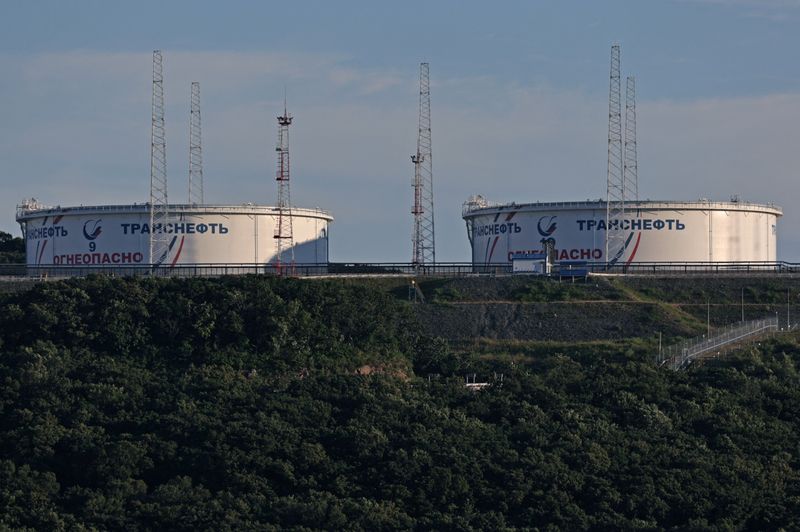Oil steady as markets brace for OPEC+ signals and rising geopolitical tensions

By Arunima Kumar and Enes Tunagur
(Reuters) – Oil prices were little changed on Monday ahead of an upcoming OPEC+ meeting and following 6% gains last week and as geopolitical tensions remained high.
futures were down 0.23%, or 17 cents, to $75.00 a barrel by 1314 GMT, while U.S. West Texas Intermediate crude futures were at $71.01 a barrel, down 23 cents, or 0.32%.
Russia’s Defence Ministry said on Monday its forces had shot down eight ballistic missiles fired by Ukrainian forces in the last 24 hours, Russian state media reported.
Meanwhile, Ukrainian military said it had struck an oil depot overnight in Russia’s western Kaluga region.
Markets are also expected to move this week ahead of an OPEC+ meeting set for Dec 1 where the group may stick with deep oil cuts.
“The OPEC+ summit on Dec. 1, will further postpone the start of the planned production increases until February. Pushing back the start until Q2 or later is another possibility that would add even more support,” said Tim Evans, an independent energy analyst.
Iran said it will strive not to accept cuts to its oil production, its oil minister said on Monday.
OPEC+ had previously delayed the output increase from October because of falling prices, weak demand and rising supplies.
“Combination of geopolitical developments suggests a potentially bullish outlook for global prices in the medium term, as supply disruptions may outweigh demand concerns for a certain time,” said George Pavel, general manager at Naga.com Middle East.
Investors are also digesting U.S. President-elect Donald Trump’s plans for higher oil production.

Trump’s transition team is putting together an energy package to roll out within days of his taking office that would increase oil drilling off the U.S. coast and on federal lands, according to two sources familiar with the plans.
In China, crude imports rebounded in November as lower prices drew stockpiling demand. Chinese crude imports are likely to rise further with an additional import quota of at least 5.84 million metric tons (116,800 bpd) issued to independent refiners for cargoes arriving into next year, people familiar with the matter said on Monday.






